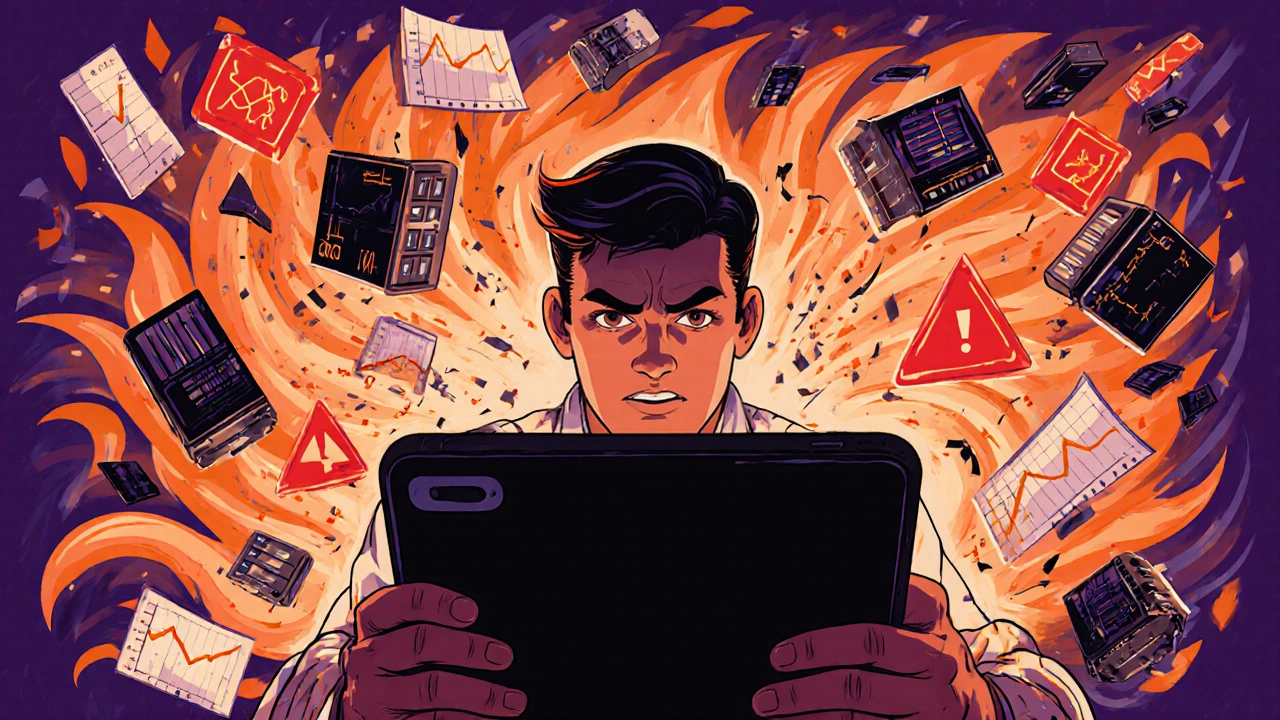Trading Platform Down: What to Do When Your Brokerage Fails
When a trading platform down, a digital system that lets you buy and sell stocks, ETFs, or crypto in real time. Also known as online brokerage outage, it can leave you locked out of your investments at the worst possible moment. This isn’t rare—it happens to big names like Robinhood, TD Ameritrade, and Fidelity. In 2020, during the GameStop frenzy, platforms crashed under traffic. In 2023, a major bank’s trading app went dark for hours after a software update. If you trade regularly, you need to know what causes this, how to react, and how to avoid losing money because of it.
Most trading platform down events come from three places: server overload, software bugs, or cybersecurity attacks. Server overload is the most common—when thousands of users hit the platform at once, like during earnings season or a market crash. Software bugs are sneakier; they show up after updates, and you won’t know until the app freezes. Cyberattacks are rarer but more dangerous. Hackers don’t always steal your money—they just crash the system to create panic. Meanwhile, your brokerage outage, when your chosen financial service provider becomes inaccessible for trading or account access. Also known as brokerage system failure might be tied to third-party providers like clearinghouses or payment processors. If those go down, your platform goes with them—even if their servers are fine.
What can you do when it happens? First, don’t panic. Selling in a frenzy when you can’t access your account often leads to worse outcomes. Check if it’s a widespread issue by searching Twitter or Reddit for your broker’s name + "down." If others are affected, it’s likely not your device. Use your broker’s website instead of the app—sometimes the desktop site stays up. Keep your phone charged and have backup access: if you use Webull, have a Fidelity login saved. If you’re holding a position that’s crashing and you can’t sell, remember: you’re not losing money until you sell. Paper losses aren’t real losses. Many brokers offer SMS alerts or email notifications for outages—make sure you’re signed up. And always keep a small cash buffer outside your brokerage account. You don’t need to trade to stay financially safe.
The real lesson? Don’t put all your trust in one platform. Diversify your access. Use a broker with a strong track record during volatility. Look for ones that publish uptime reports. Check if they have a secondary trading portal. And never assume your broker will be there when you need them most. The market doesn’t pause for tech glitches—and neither should your planning.
Below, you’ll find real stories and fixes from investors who’ve been there. From how to spot early warning signs of a crash to which brokers recover fastest, these posts give you the tools to stay in control—even when the system isn’t.
